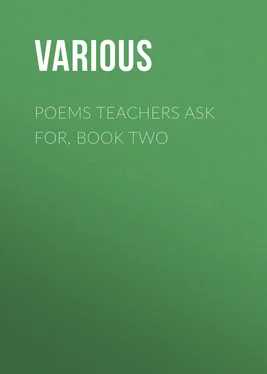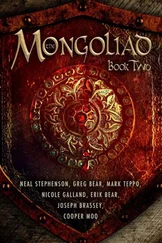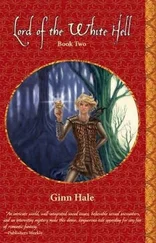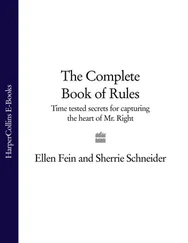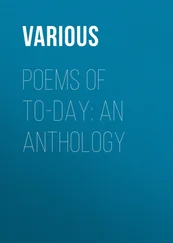Various - Poems Teachers Ask For, Book Two
Здесь есть возможность читать онлайн «Various - Poems Teachers Ask For, Book Two» — ознакомительный отрывок электронной книги совершенно бесплатно, а после прочтения отрывка купить полную версию. В некоторых случаях можно слушать аудио, скачать через торрент в формате fb2 и присутствует краткое содержание. Жанр: foreign_poetry, Поэзия, foreign_antique, foreign_prose, на английском языке. Описание произведения, (предисловие) а так же отзывы посетителей доступны на портале библиотеки ЛибКат.
- Название:Poems Teachers Ask For, Book Two
- Автор:
- Жанр:
- Год:неизвестен
- ISBN:нет данных
- Рейтинг книги:4 / 5. Голосов: 1
-
Избранное:Добавить в избранное
- Отзывы:
-
Ваша оценка:
- 80
- 1
- 2
- 3
- 4
- 5
Poems Teachers Ask For, Book Two: краткое содержание, описание и аннотация
Предлагаем к чтению аннотацию, описание, краткое содержание или предисловие (зависит от того, что написал сам автор книги «Poems Teachers Ask For, Book Two»). Если вы не нашли необходимую информацию о книге — напишите в комментариях, мы постараемся отыскать её.
Poems Teachers Ask For, Book Two — читать онлайн ознакомительный отрывок
Ниже представлен текст книги, разбитый по страницам. Система сохранения места последней прочитанной страницы, позволяет с удобством читать онлайн бесплатно книгу «Poems Teachers Ask For, Book Two», без необходимости каждый раз заново искать на чём Вы остановились. Поставьте закладку, и сможете в любой момент перейти на страницу, на которой закончили чтение.
Интервал:
Закладка:
"We don't want any singing except that what we've bought!
The latest tunes are all the rage; the old ones stand for naught;
And so we have decided—are you list'ning, Brother Eyer?—
That you'll have to stop your singin' for it flurrytates the choir."
The old man slowly raised his head, a sign that he did hear,
And on his cheek the trio caught the glitter of a tear;
His feeble hands pushed back the locks white as the silky snow,
As he answered the committee in a voice both sweet and low:
"I've sung the psalms of David nearly eighty years," said he;
"They've been my staff and comfort all along life's dreary way;
I'm sorry I disturb the choir, perhaps I'm doing wrong;
But when my heart is filled with praise, I can't keep back a song.
"I wonder if beyond the tide that's breaking at my feet,
In the far-off heav'nly temple, where the Master I shall greet—
Yes, I wonder when I try to sing the songs of God up high'r,
If the angel band will church me for disturbing heaven's choir."
A silence filled the little room; the old man bowed his head;
The carriage rattled on again, but Brother Eyer was dead!
Yes, dead! his hand had raised the veil the future hangs before us,
And the Master dear had called him to the everlasting chorus.
The choir missed him for a while, but he was soon forgot,
A few church-goers watched the door; the old man entered not.
Far away, his voice no longer cracked, he sang his heart's desires,
Where there are no church committees and no fashionable choirs!
Duty
The sweetest lives are those to duty wed,
Whose deeds, both great and small,
Are close knit strands of an unbroken thread,
Whose love ennobles all.
The world may sound no trumpet, ring no bells;
The book of life, the shining record tells.
Thy love shall chant its own beatitudes,
After its own life-working. A child's kiss
Set on thy singing lips shall make thee glad;
A poor man served by thee shall make thee rich;
A sick man helped by thee shall make thee strong;
Thou shalt be served thyself by every sense
Of service thou renderest.
The Last Leaf
I saw him once before,
As he passed by the door,
And again
The pavement stones resound,
As he totters o'er the ground
With his cane.
They say that in his prime,
Ere the pruning-knife of Time
Cut him down,
Not a better man was found
By the Crier on his round
Through the town.
But now he walks the streets,
And he looks at all he meets
Sad and wan,
And he shakes his feeble head,
That it seems as if he said
"They are gone."
The mossy marbles rest
On the lips that he has prest
In their bloom,
And the names he loved to hear
Have been carved for many a year
On the tomb.
My grandmamma has said,—
Poor old lady, she is dead
Long ago,—
That he had a Roman nose,
And his cheek was like a rose
In the snow.
But now his nose is thin,
And it rests upon his chin.
Like a staff,
And a crook is in his back,
And a melancholy crack
In his laugh.
I know it is a sin
For me to sit and grin
At him here;
But the old three-cornered hat,
And the breeches, and all that,
Are so queer!
And if I should live to be
The last leaf upon the tree
In the spring,
Let them smile, as I do now,
At the old forsaken bough
Where I cling.
Old Flag Forever
She's up there—Old Glory—where lightnings are sped;
She dazzles the nations with ripples of red;
And she'll wave for us living, or droop o'er us dead,—
The flag of our country forever!
She's up there—Old Glory—how bright the stars stream!
And the stripes like red signals of liberty gleam!
And we dare for her, living, or dream the last dream,
'Neath the flag of our country forever!
She's up there—Old Glory—no tyrant-dealt scars,
No blur on her brightness, no stain on her stars!
The brave blood of heroes hath crimsoned her bars.
She's the flag of our country forever!
The Death of the Flowers
The melancholy days are come, the saddest of the year,
Of wailing winds, and naked woods, and meadows brown and sear.
Heaped in the hollows of the grove, the withered leaves lie dead;
They rustle to the eddying gust, and to the rabbit's tread.
The robin and the wren are flown, and from the shrub the jay,
And from the wood-top calls the crow, through all the gloomy day.
Where are the flowers, the fair young flowers, that lately sprang and stood
In brighter light and softer airs, a beauteous sisterhood?
Alas! they all are in their graves; the gentle race of flowers
Are lying in their lowly beds, with the fair and good of ours.
The rain is falling where they lie; but the cold November rain
Calls not from out the gloomy earth the lovely ones again.
The wind-flower and the violet, they perished long ago,
And the brier-rose and the orchis died amid the summer glow;
But on the hill the golden-rod, and the aster in the wood,
And the yellow sun-flower by the brook, in autumn beauty stood,
Till fell the frost from the clear cold heaven, as falls the plague on men,
And the brightness of their smile was gone from upland, glade and glen.
And now, when comes the calm, mild day, as still such days will come,
To call the squirrel and the bee from out their winter home,
When the sound of dropping nuts is heard, though all the trees are still,
And twinkle in the smoky light the waters of the rill,
The south wind searches for the flowers, whose fragrance late he bore,
And sighs to find them in the wood and by the stream no more.
And then I think of one who in her youthful beauty died,
The fair, meek blossom that grew up and faded by my side,
In the cold, moist earth we laid her when the forest cast the leaf,
And we wept that one so lovely should have a life so brief;
Yet not unmeet it was that one, like that young friend of ours,
So gentle and so beautiful, should perish with the flowers.
The Heritage
The rich man's son inherits lands,
And piles of brick, and stone, and gold,
And he inherits soft white hands,
And tender flesh that fears the cold,
Nor dares to wear a garment old;
A heritage, it seems to me,
One scarce would wish to hold in fee.
The rich man's son inherits cares;
The bank may break, the factory burn,
A breath may burst his bubble shares,
And soft white hands could hardly earn
A living that would serve his turn;
A heritage, it seems to me,
One scarce would wish to hold in fee.
The rich man's son inherits wants,
His stomach craves for dainty fare;
With sated heart, he hears the pants
Of toiling hinds with brown arms bare,
And wearies in his easy-chair;
A heritage, it seems to me,
One scarce would wish to hold in fee.
What doth the poor man's son inherit?
Stout muscles and a sinewy heart,
A hardy frame, a hardier spirit;
King of two hands, he does his part
In every useful toil and art;
A heritage, it seems to me,
A king might wish to hold in fee.
Интервал:
Закладка:
Похожие книги на «Poems Teachers Ask For, Book Two»
Представляем Вашему вниманию похожие книги на «Poems Teachers Ask For, Book Two» списком для выбора. Мы отобрали схожую по названию и смыслу литературу в надежде предоставить читателям больше вариантов отыскать новые, интересные, ещё непрочитанные произведения.
Обсуждение, отзывы о книге «Poems Teachers Ask For, Book Two» и просто собственные мнения читателей. Оставьте ваши комментарии, напишите, что Вы думаете о произведении, его смысле или главных героях. Укажите что конкретно понравилось, а что нет, и почему Вы так считаете.
